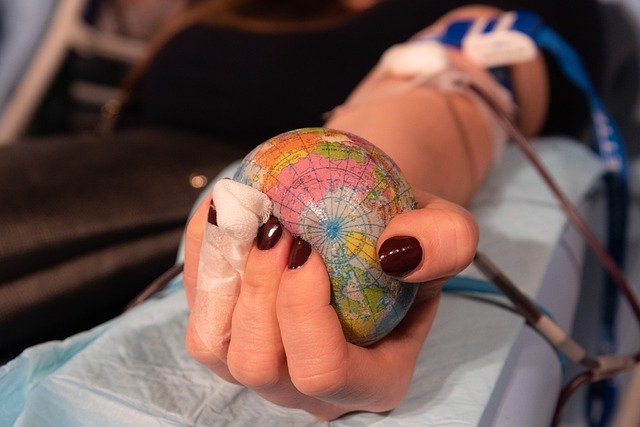5 Habits That Silently Damage Your Kidneys Every Day
Your kidneys work tirelessly to keep your body balanced, filtering toxins and maintaining overall health. Yet, many of us unknowingly engage in everyday habits that put these vital organs at risk. From what we eat to how we hydrate, certain routines can silently harm kidney function over time. Understanding these habits is the first step toward protecting your long-term health.

Skipping Water Throughout the Day
Water is essential for proper kidney function. These vital organs filter approximately 120-150 quarts of blood daily, removing waste and excess fluid that eventually becomes urine. Without adequate hydration, this filtration process becomes significantly more difficult.
When you don’t drink enough water, your urine becomes more concentrated, darker in color, and potentially harmful to your kidneys. This concentrated urine increases the risk of kidney stone formation and urinary tract infections, both of which can damage kidney tissue. The general recommendation is to drink about eight 8-ounce glasses of water daily, though individual needs may vary based on activity level, climate, and overall health.
Signs of inadequate hydration include dark yellow urine, dry mouth, fatigue, and dizziness. Rather than waiting until you feel thirsty—which often signals you’re already somewhat dehydrated—develop a habit of drinking water regularly throughout the day. Consider keeping a reusable water bottle with you as a constant reminder.
Consuming Excessive Salt in Your Meals
High sodium intake forces your kidneys to work harder to eliminate excess salt from your bloodstream. Over time, this added strain can lead to reduced kidney function and contribute to hypertension, which further damages these organs in a dangerous cycle.
The average American consumes approximately 3,400mg of sodium daily, significantly exceeding the recommended limit of 2,300mg (about one teaspoon of salt). Much of this comes from processed and restaurant foods rather than the salt shaker. Hidden sodium lurks in bread, canned soups, deli meats, and many condiments.
To protect your kidneys, read nutrition labels carefully and choose low-sodium alternatives when possible. Cooking at home gives you greater control over salt content. Flavor foods with herbs, spices, citrus, and vinegar instead of reaching for the salt. Even reducing sodium intake moderately can help ease the burden on your kidneys and improve overall kidney health.
Overusing Painkillers and Certain Medications
Many common over-the-counter painkillers, particularly nonsteroidal anti-inflammatory drugs (NSAIDs) like ibuprofen and naproxen, can cause significant kidney damage when used excessively or for extended periods. These medications reduce blood flow to the kidneys and can interfere with their function.
While occasional use for headaches or minor pain is generally safe for those with healthy kidneys, regular long-term use presents substantial risks. Studies have shown that habitual NSAID users have a significantly higher risk of developing chronic kidney disease compared to non-users.
Acetaminophen (Tylenol) is typically less harmful to the kidneys when used as directed, making it a preferable alternative for those with kidney concerns. However, all medications should be taken according to package instructions or healthcare provider guidance. If you require pain management for chronic conditions, consult your doctor about kidney-friendly approaches to pain control.
Ignoring High Blood Pressure and Diabetes
Hypertension and diabetes are the two leading causes of kidney failure in the United States. These conditions damage the small blood vessels in the kidneys, impairing their ability to filter blood effectively. Unfortunately, both conditions often progress silently for years before symptoms become apparent.
High blood pressure damages blood vessels throughout the body, including the nephrons in your kidneys that filter your blood. Over time, this damage reduces kidney function and can eventually lead to kidney failure. Similarly, uncontrolled diabetes causes excessive sugar in the bloodstream, which damages the filtering system in the kidneys.
Regular medical check-ups that include blood pressure readings and blood glucose testing are essential for early detection and management. If you have either condition, following your treatment plan diligently—including medication, diet modifications, and lifestyle changes—can significantly reduce your risk of kidney complications. Even small improvements in blood pressure and blood sugar control can substantially protect your kidney function.
Eating Too Many Processed Foods
The modern diet, rich in highly processed foods, presents multiple threats to kidney health. These foods typically contain excessive sodium, phosphorus additives, and artificial ingredients that can burden the kidneys and contribute to chronic kidney disease over time.
Processed foods often contain phosphorus additives (listed as phosphates on ingredients labels) that are more readily absorbed by the body than natural phosphorus found in whole foods. While phosphorus is an essential mineral, too much can cause calcium-phosphorus deposits in the kidneys and other tissues, particularly in people with already compromised kidney function.
Additionally, many processed foods are high in refined carbohydrates and unhealthy fats that contribute to obesity, diabetes, and hypertension—all risk factors for kidney disease. Focusing your diet on whole, unprocessed foods like fruits, vegetables, lean proteins, and whole grains provides nutrients that support kidney health without the harmful additives.
Conclusion
Your kidneys perform crucial functions that maintain your body’s delicate balance, yet everyday habits can gradually undermine their health without obvious symptoms. Being mindful about hydration, sodium intake, medication use, chronic disease management, and diet choices can significantly protect these vital organs. Small daily changes—drinking more water, reducing salt, being cautious with painkillers, managing existing health conditions, and choosing whole foods—collectively create a protective strategy for long-term kidney health.
This article is for informational purposes only and should not be considered medical advice. Please consult a qualified healthcare professional for personalized guidance and treatment.




